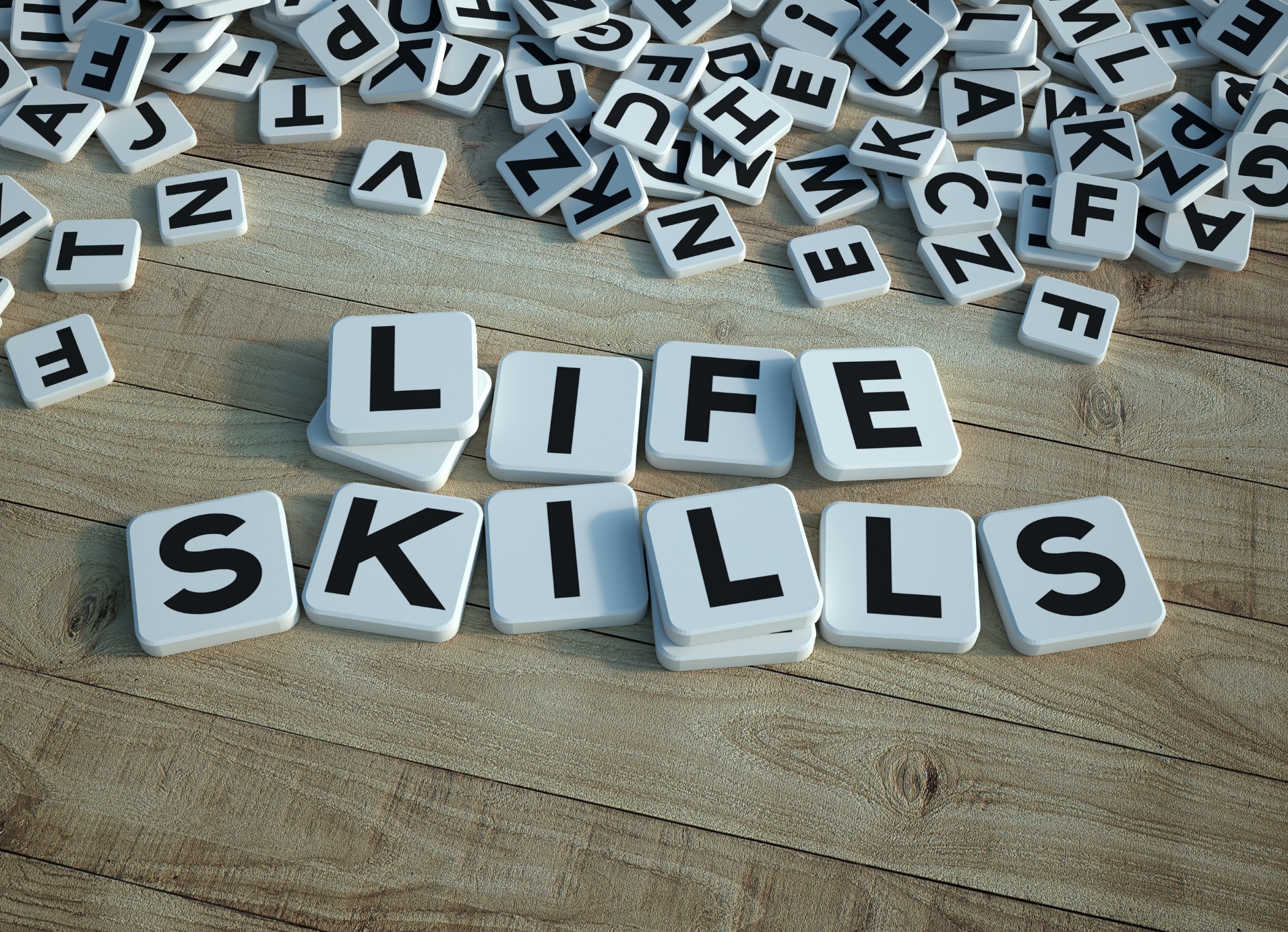


Our compassionate and dedicated therapists are very experienced in the use of highly regarded
talking therapies, such as Cognitive Behavioral Therapy. However, sometimes talking therapy,
while necessary, isn’t enough to teach people the behavioral skills necessary for success in life.
For this reason, we are extremely pleased to offer Life Skills Behavioral Therapy programs to
supplement our talking therapy services.
The benefits of Life Skills Behavioral Therapy include improved personal well-being and mental
health, greater success in school, better career prospects, and stronger interpersonal relationships.
Life skills have been found to be so important for optimal mental and behavioral health that we
chose the term “Life Skills” to be part of the name of our agency.
Life skills are abilities that enable children and adults to cope more effectively with the demands
and challenges of life. Here are some examples of important life skills:
• Effective communication
• Social skills
• Parenting skills
• Academic skills
• Anger and stress management skills.
• Organizational and time-management skills
• Critical thinking
• Decision-making
• Problem-solving
• Self-awareness
• Creativity
• Empathy
• Assertiveness
• Self-confidence
• Resilience (the ability to recover from setbacks)
Life Skills Behavioral Therapy is a structured learning approach that teaches children and adults
new skills and behaviors by breaking them down into manageable steps. The four main
components of Life Skills Behavioral Therapy are:
Instruction:
The therapist provides the patient with a clear and concise explanation of the
desired skill or behavior.
Modeling:
The therapist demonstrates the correct way to perform the desired skill or behavior,
allowing the patient to observe and understand the expectations.
Practice:
The patient practices the skill or behavior, receiving guidance and support from the
therapist. Often patients are given behavioral homework assignments in which social,
interpersonal, and behavioral self-management skills are practiced between office sessions.
Feedback:
The therapist provides the patient with constructive feedback, praising the aspects
that were done well, and pointing out areas that need improvement.
Life Skills Behavioral Therapy often takes place in real-life community settings as well as in the
therapist’s office. For many children and adults, desirable results can be achieved in one or two
sessions per week. People who have struggled with significant anxiety, depression, and
relationship problems for a great length of time may need several hours of Life Skills Behavioral
Therapy per week during the first few months of treatment.
Give us the opportunity to make a difference in your life! Contact us to learn more about our
counseling and behavior therapy services.
Our compassionate and dedicated therapists are very experienced in the use of highly regarded
talking therapies, such as Cognitive Behavioral Therapy. However, sometimes talking therapy,
while necessary, isn’t enough to teach people the behavioral skills necessary for success in life.
For this reason, we are extremely pleased to offer Life Skills Behavioral Therapy programs to
supplement our talking therapy services.
The benefits of Life Skills Behavioral Therapy include improved personal well-being and mental
health, greater success in school, better career prospects, and stronger interpersonal relationships.
Life skills have been found to be so important for optimal mental and behavioral health that we
chose the term “Life Skills” to be part of the name of our agency.
Life skills are abilities that enable children and adults to cope more effectively with the demands
and challenges of life. Here are some examples of important life skills:
• Effective communication
• Social skills
• Parenting skills
• Academic skills
• Anger and stress management skills.
• Organizational and time-management skills
• Critical thinking
• Decision-making
• Problem-solving
• Self-awareness
• Creativity
• Empathy
• Assertiveness
• Self-confidence
• Resilience (the ability to recover from setbacks)
Life Skills Behavioral Therapy is a structured learning approach that teaches children and adults
new skills and behaviors by breaking them down into manageable steps. The four main
components of Life Skills Behavioral Therapy are:
Instruction:
The therapist provides the patient with a clear and concise explanation of the
desired skill or behavior.
Modeling:
The therapist demonstrates the correct way to perform the desired skill or behavior,
allowing the patient to observe and understand the expectations.
Practice:
The patient practices the skill or behavior, receiving guidance and support from the
therapist. Often patients are given behavioral homework assignments in which social,
interpersonal, and behavioral self-management skills are practiced between office sessions.
Feedback:
The therapist provides the patient with constructive feedback, praising the aspects
that were done well, and pointing out areas that need improvement.
Life Skills Behavioral Therapy often takes place in real-life community settings as well as in the
therapist’s office. For many children and adults, desirable results can be achieved in one or two
sessions per week. People who have struggled with significant anxiety, depression, and
relationship problems for a great length of time may need several hours of Life Skills Behavioral
Therapy per week during the first few months of treatment.
Give us the opportunity to make a difference in your life! Contact us to learn more about our
counseling and behavior therapy services.